- Denzel Washington: God bless Rubin Carter and his tireless fight
- Carter wrote in a 2011 book that he was guilty of other crimes but not murder
- A federal judge said Carter and another man failed to receive fair trials
- Carter lived in Toronto after he was freed from prison
(CNN) -- Rubin "Hurricane" Carter, the middleweight boxing contender who spent 19 years in prison after being wrongly convicted of a triple murder, has died in Toronto, according to Win Wahrer, the director of client services for the Association in Defence of the Wrongly Convicted.
Carter, 76, died of complications from prostate cancer, Wahrer said.
"I always remember spending hours and hours with Rubin talking about the wrongful convictions," she told CNN. "He was a great mentor and teacher. I felt very fortunate to have those times with him. ... He lived a very full life."
Carter spent 19 years in prison for a triple killing in New Jersey before a federal judge ruled in 1985 that he and John Artis, who was with Carter on the night of the shootings, did not receive fair trials and released them.
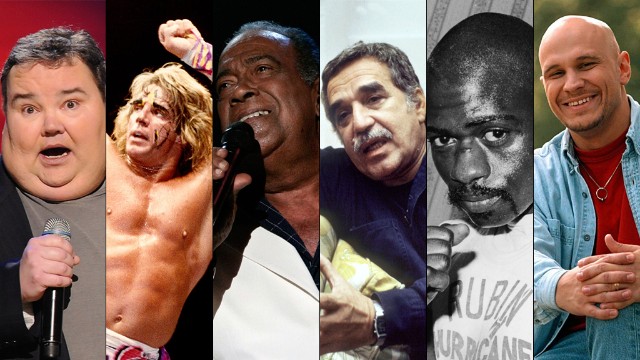 Click through to see people who passed away in 2014.
Click through to see people who passed away in 2014. 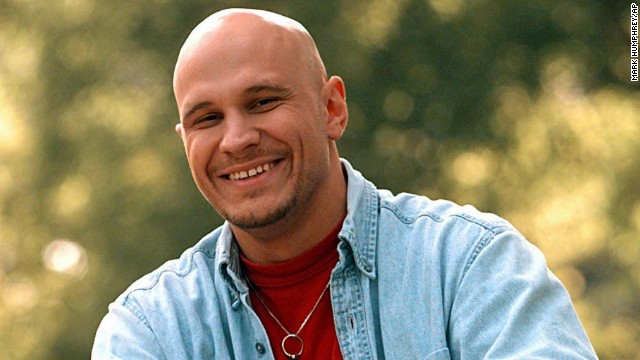 Country singer Kevin Sharp died from "complications due to cancer" on April 19, his mother told CNN. He was 43.
Country singer Kevin Sharp died from "complications due to cancer" on April 19, his mother told CNN. He was 43. 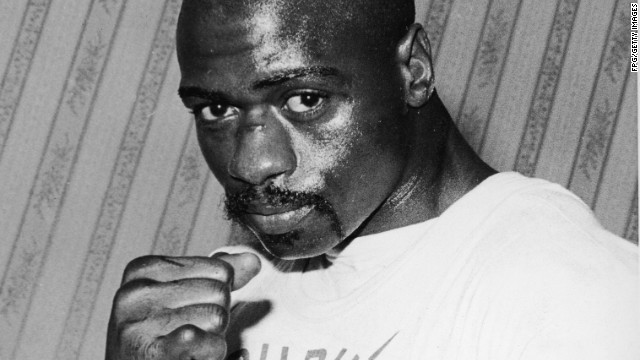 Rubin "Hurricane" Carter, the middleweight boxing contender who was wrongly convicted of a triple murder in New Jersey in the 1960s, has died in Toronto at 76, Win Wahrer of the Association in Defence of the Wrongly Convicted said on Sunday, April 20.
Rubin "Hurricane" Carter, the middleweight boxing contender who was wrongly convicted of a triple murder in New Jersey in the 1960s, has died in Toronto at 76, Win Wahrer of the Association in Defence of the Wrongly Convicted said on Sunday, April 20. 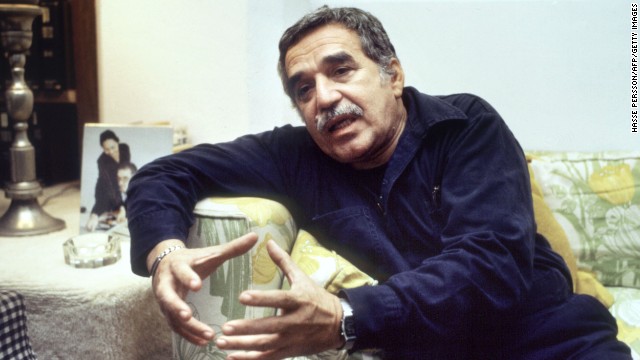 Gabriel Garcia Marquez, the influential, Nobel Prize-winning author of "One Hundred Years of Solitude" and "Love in the Time of Cholera," passed away on Thursday, April 17, his family and officials said. He was 87.
Gabriel Garcia Marquez, the influential, Nobel Prize-winning author of "One Hundred Years of Solitude" and "Love in the Time of Cholera," passed away on Thursday, April 17, his family and officials said. He was 87. 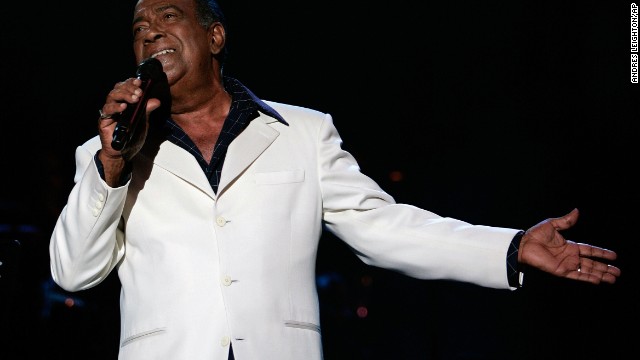 Jose Luis "Cheo" Feliciano, a giant of salsa music and a Puerto Rican legend, died in a car crash Thursday, April 18, in San Juan, Puerto Rico, according to police. He was 78.
Jose Luis "Cheo" Feliciano, a giant of salsa music and a Puerto Rican legend, died in a car crash Thursday, April 18, in San Juan, Puerto Rico, according to police. He was 78. 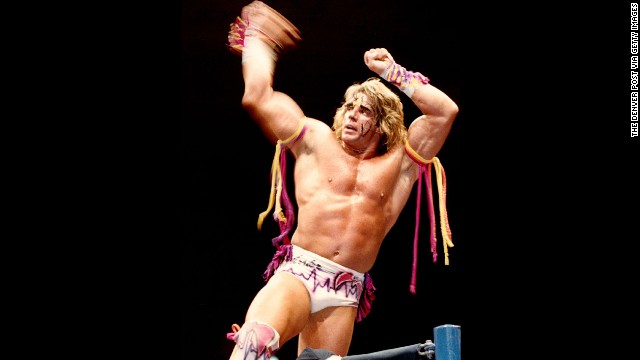 Days after being inducted into World Wrestling Entertainment's Hall of Fame, WWE superstar Ultimate Warrior died Tuesday, April 8, of unknown causes. Born James Hellwig, he legally changed his name to Warrior in 1993. He was 54.
Days after being inducted into World Wrestling Entertainment's Hall of Fame, WWE superstar Ultimate Warrior died Tuesday, April 8, of unknown causes. Born James Hellwig, he legally changed his name to Warrior in 1993. He was 54. 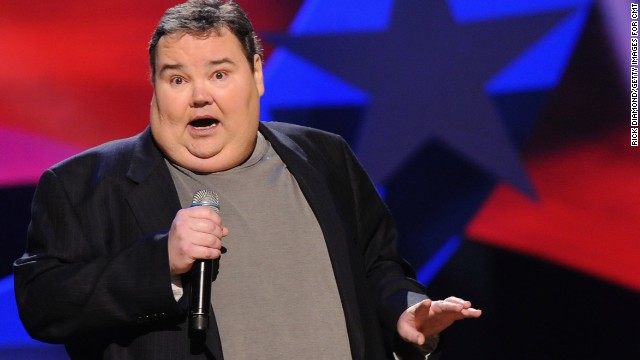 Comedian John Pinette, 50, was found dead in a Pittsburgh hotel room on April 5. Pinette died of natural causes stemming from "a medical history he was being treated for," the medical examiner's spokesman said. An autopsy will not be done because his personal doctor signed the death certificate.
Comedian John Pinette, 50, was found dead in a Pittsburgh hotel room on April 5. Pinette died of natural causes stemming from "a medical history he was being treated for," the medical examiner's spokesman said. An autopsy will not be done because his personal doctor signed the death certificate. 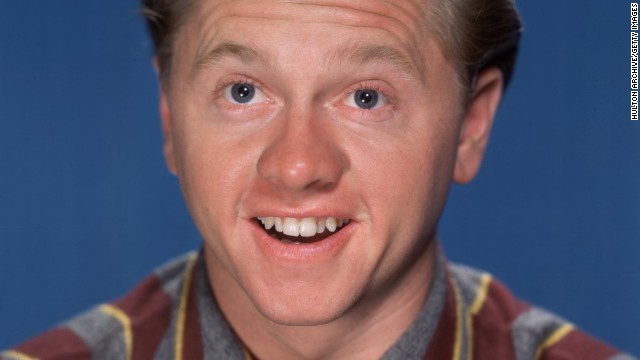 Mickey Rooney, who started as a child star in vaudeville and went on to star in hundreds of movies and TV shows, died April 6 at the age of 93.
Mickey Rooney, who started as a child star in vaudeville and went on to star in hundreds of movies and TV shows, died April 6 at the age of 93. 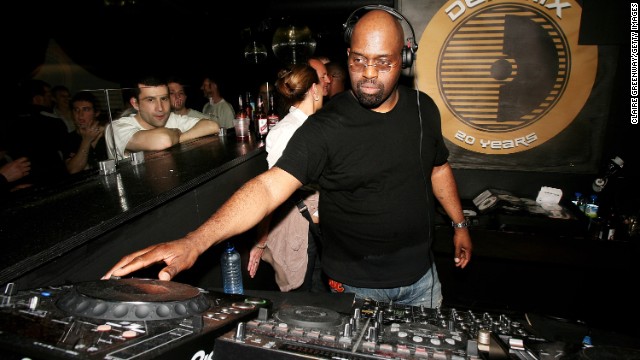 DJ Frankie Knuckles, a legendary producer, remixer and house music pioneer, died March 31 at the age of 59.
DJ Frankie Knuckles, a legendary producer, remixer and house music pioneer, died March 31 at the age of 59. 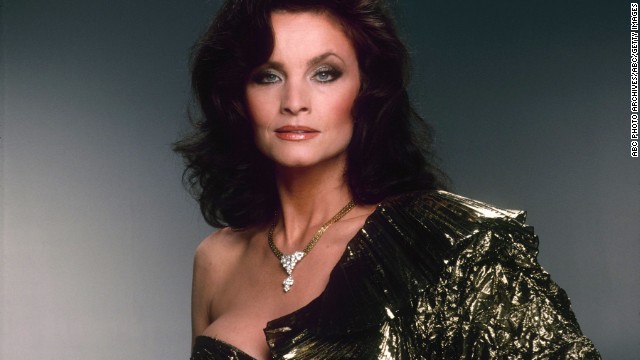 Kate O'Mara, the British actress best known for playing Joan Collins' sister on the 1980s show "Dynasty," died March 30. She was 74.
Kate O'Mara, the British actress best known for playing Joan Collins' sister on the 1980s show "Dynasty," died March 30. She was 74. 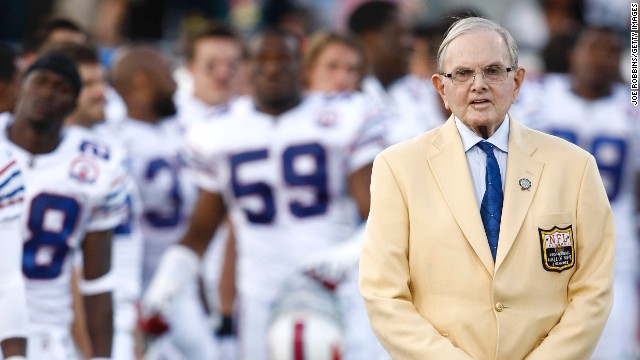 Ralph C. Wilson Jr., the founder and longtime owner of the NFL's Buffalo Bills, died at age 95, the team announced March 25.
Ralph C. Wilson Jr., the founder and longtime owner of the NFL's Buffalo Bills, died at age 95, the team announced March 25. 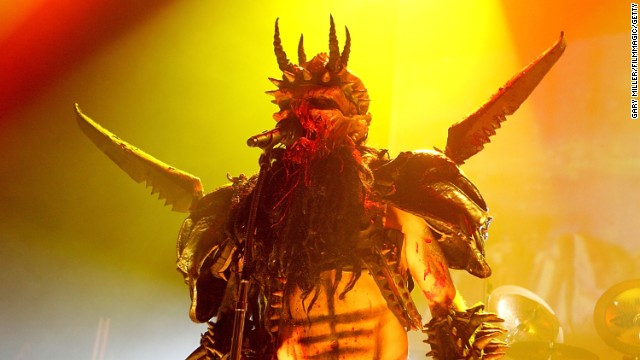 Gwar lead singer Dave Brockie died March 23 at the age of 50, his manager said. The heavy-metal group formed in 1984, billing itself as "Earth's only openly extraterrestrial rock band." Brockie performed in the persona of Oderus Urungus.
Gwar lead singer Dave Brockie died March 23 at the age of 50, his manager said. The heavy-metal group formed in 1984, billing itself as "Earth's only openly extraterrestrial rock band." Brockie performed in the persona of Oderus Urungus. 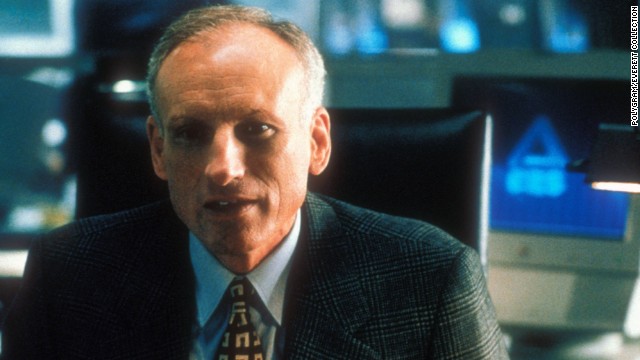 James Rebhorn, whose acting resume includes a long list of character roles in major films and TV shows, died March 21, his representative said. Rebhorn was 65.
James Rebhorn, whose acting resume includes a long list of character roles in major films and TV shows, died March 21, his representative said. Rebhorn was 65. 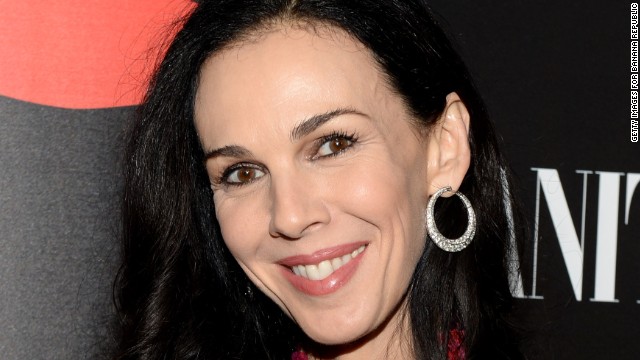 L'Wren Scott, a noted fashion designer and girlfriend of musician Mick Jagger, was found dead of an apparent suicide March 17, according to a law enforcement official. She was 49.
L'Wren Scott, a noted fashion designer and girlfriend of musician Mick Jagger, was found dead of an apparent suicide March 17, according to a law enforcement official. She was 49. 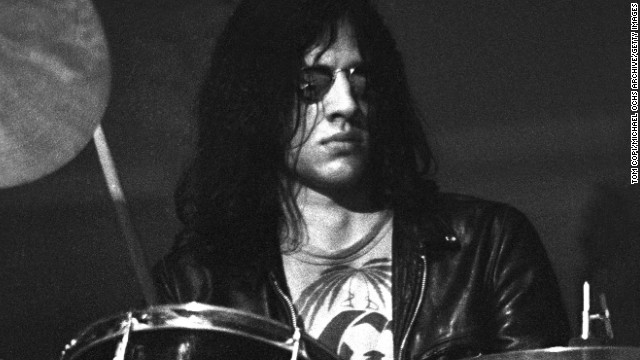 Drummer Scott Asheton, who co-founded and played drums for the influential proto-punk band The Stooges, died March 15. He was 64.
Drummer Scott Asheton, who co-founded and played drums for the influential proto-punk band The Stooges, died March 15. He was 64. 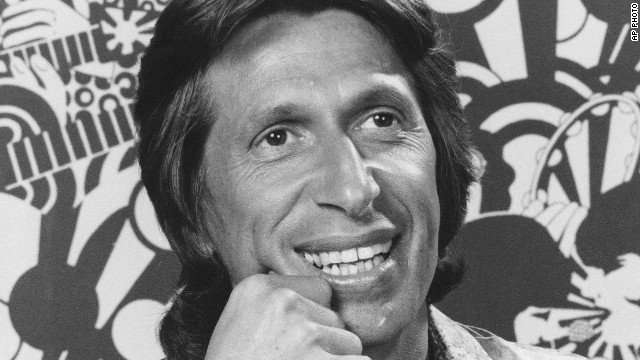 Comedian David Brenner, a regular on Johnny Carson's "The Tonight Show," died after a battle with cancer, a family spokesman said March 15. He was 78.
Comedian David Brenner, a regular on Johnny Carson's "The Tonight Show," died after a battle with cancer, a family spokesman said March 15. He was 78. 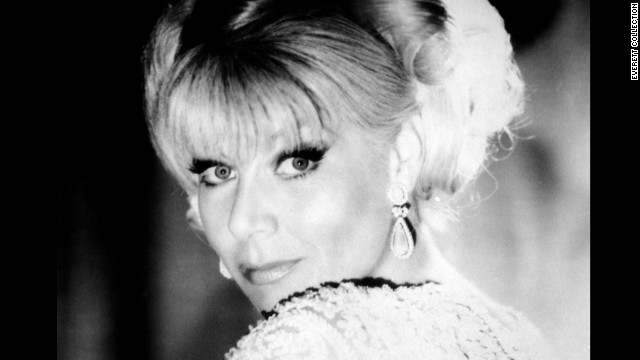 Actress Sheila MacRae, who portrayed Alice Kramden in a 1960s revival of "The Honeymooners" on "The Jackie Gleason Show," died on March 6, according to her family. She was 92.
Actress Sheila MacRae, who portrayed Alice Kramden in a 1960s revival of "The Honeymooners" on "The Jackie Gleason Show," died on March 6, according to her family. She was 92. 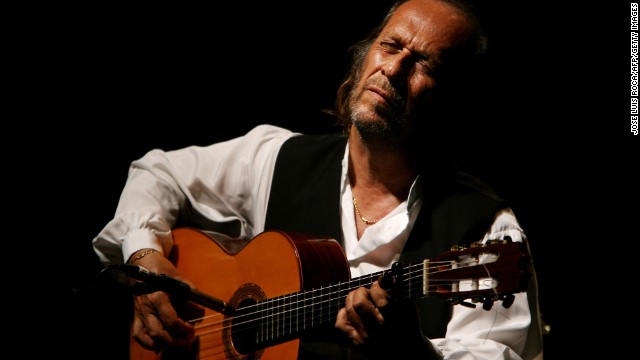 Spanish guitarist Paco de Lucia, seen here in 2006, died February 25 of an apparent heart attack. He was 66. De Lucia transformed the folk art of flamenco music into a more vibrant modern sound.
Spanish guitarist Paco de Lucia, seen here in 2006, died February 25 of an apparent heart attack. He was 66. De Lucia transformed the folk art of flamenco music into a more vibrant modern sound. 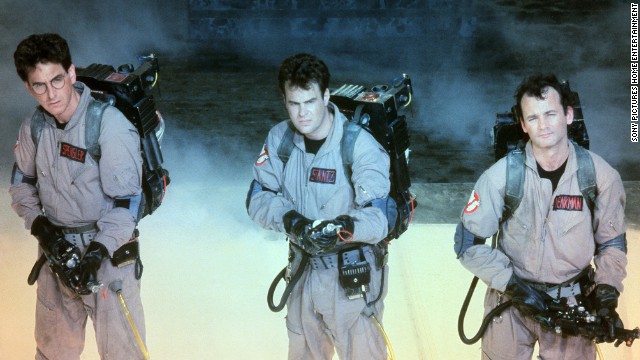 Actor, writer and director Harold Ramis, seen here on the far left with fellow "Ghostbusters" Dan Aykroyd and Bill Murray, died at his Chicago-area home on February 24. He was 69. Other popular Ramis films include "Stripes," "Groundhog Day" and "Analyze This."
Actor, writer and director Harold Ramis, seen here on the far left with fellow "Ghostbusters" Dan Aykroyd and Bill Murray, died at his Chicago-area home on February 24. He was 69. Other popular Ramis films include "Stripes," "Groundhog Day" and "Analyze This." 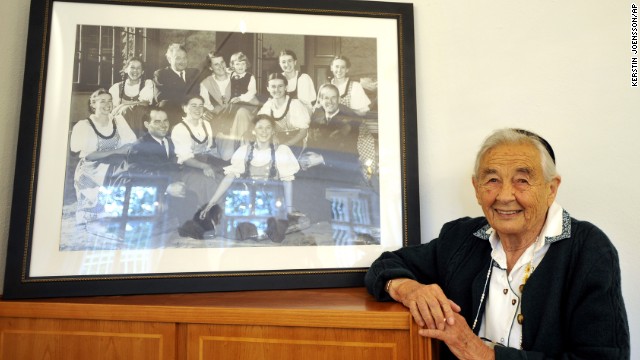 Maria von Trapp, seen here posing with a photo of her family, was the last of the singing siblings immortalized in the movie "The Sound of Music." She died February 18 of natural causes at her Vermont home, according to her family. She was 99.
Maria von Trapp, seen here posing with a photo of her family, was the last of the singing siblings immortalized in the movie "The Sound of Music." She died February 18 of natural causes at her Vermont home, according to her family. She was 99. 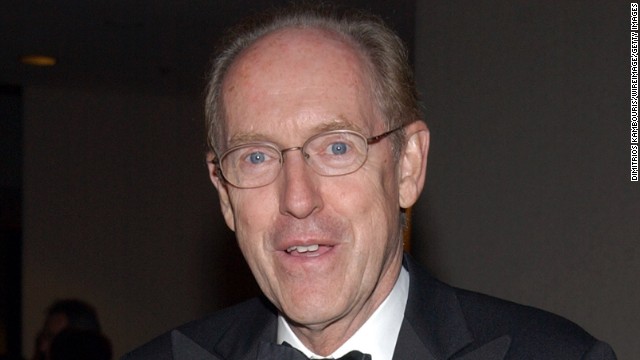 Journalist Garrick Utley died at age 74 following a long battle with cancer, his wife of 40 years said in February. Utley worked for CNN after his 30-year career at NBC News.
Journalist Garrick Utley died at age 74 following a long battle with cancer, his wife of 40 years said in February. Utley worked for CNN after his 30-year career at NBC News. 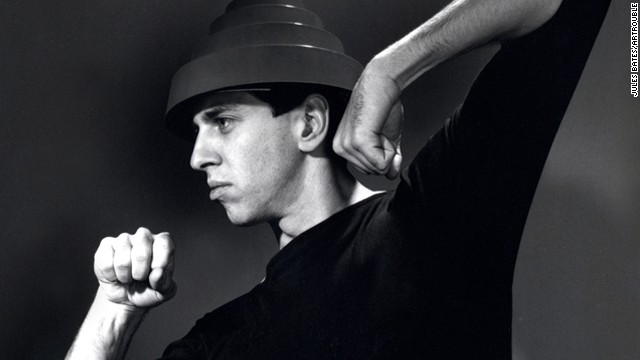 Devo guitarist Bob Casale, known by fans as "Bob 2," died February 17, his brother and band mate announced. Casale was 61.
Devo guitarist Bob Casale, known by fans as "Bob 2," died February 17, his brother and band mate announced. Casale was 61. 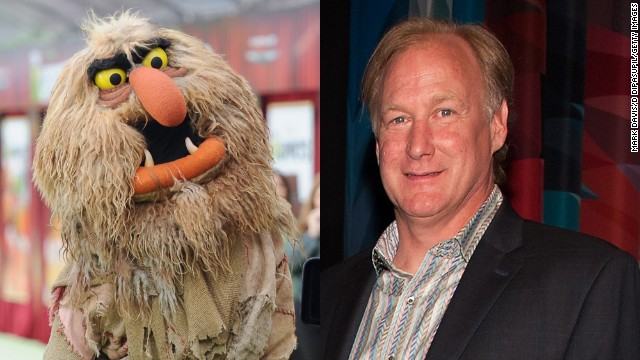 John Henson, the son of Jim Henson who is perhaps most notable for his portrayal of Sweetums on "The Muppets," died after a "sudden, massive heart attack," his family's company said on February 15.
John Henson, the son of Jim Henson who is perhaps most notable for his portrayal of Sweetums on "The Muppets," died after a "sudden, massive heart attack," his family's company said on February 15. 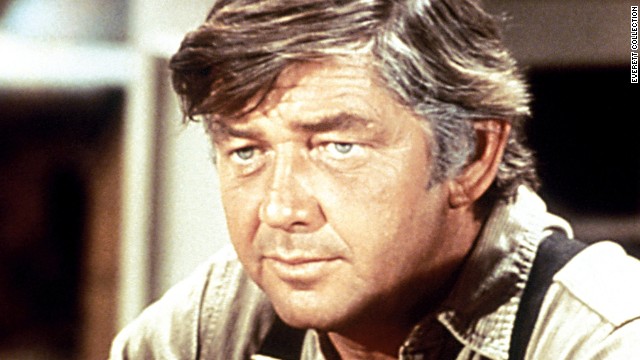 Veteran actor Ralph Waite died at 85 on February 13, according to an accountant for the Waite family and a church where the actor was a regular member. Waite was best known for his role as John Walton Sr. on 'The Waltons."
Veteran actor Ralph Waite died at 85 on February 13, according to an accountant for the Waite family and a church where the actor was a regular member. Waite was best known for his role as John Walton Sr. on 'The Waltons." 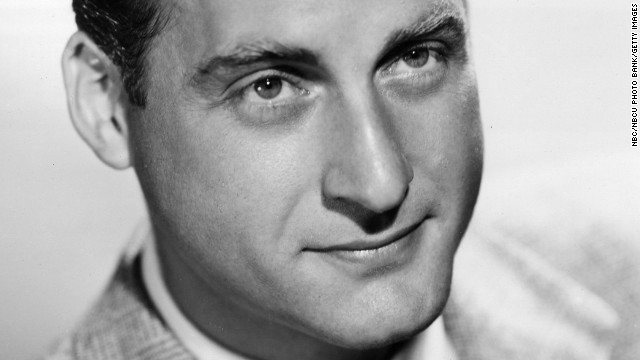 Sid Caesar, whose clever, anarchic comedy on such programs as "Your Show of Shows" and "Caesar's Hour" helped define the 1950s "Golden Age of Television," died on February 12. He was 91.
Sid Caesar, whose clever, anarchic comedy on such programs as "Your Show of Shows" and "Caesar's Hour" helped define the 1950s "Golden Age of Television," died on February 12. He was 91. 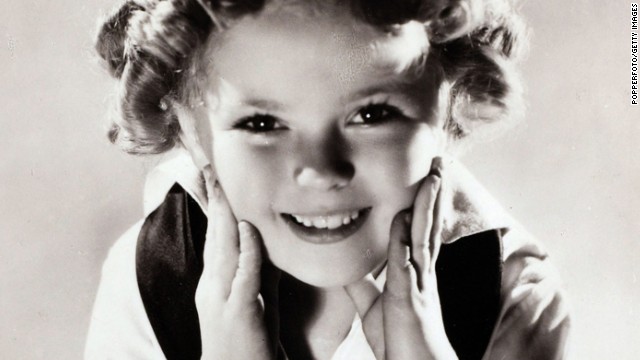 Hollywood child star Shirley Temple, who became diplomat Shirley Temple Black, died February 10 at her Woodside, California, home. She was 85.
Hollywood child star Shirley Temple, who became diplomat Shirley Temple Black, died February 10 at her Woodside, California, home. She was 85. 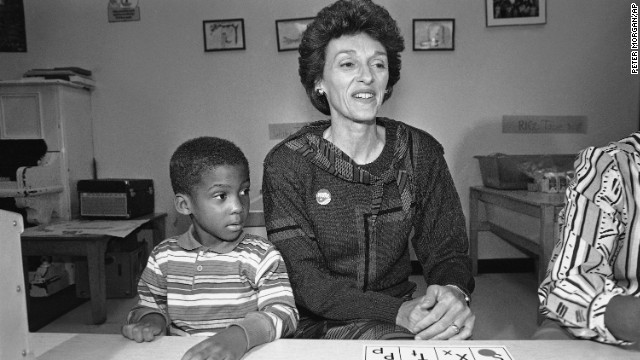 Joan Mondale, the wife of former Vice President Walter Mondale, died on February 3, according to a statement from the family's church.
Joan Mondale, the wife of former Vice President Walter Mondale, died on February 3, according to a statement from the family's church. 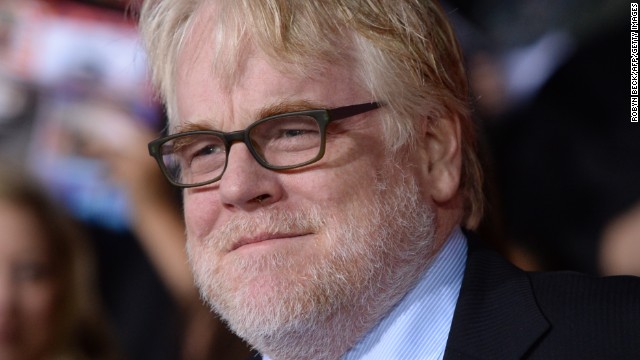 Oscar-winning actor Philip Seymour Hoffman was found dead in his Manhattan apartment of an apparent drug overdose, law enforcement sources said February 2.
Oscar-winning actor Philip Seymour Hoffman was found dead in his Manhattan apartment of an apparent drug overdose, law enforcement sources said February 2. 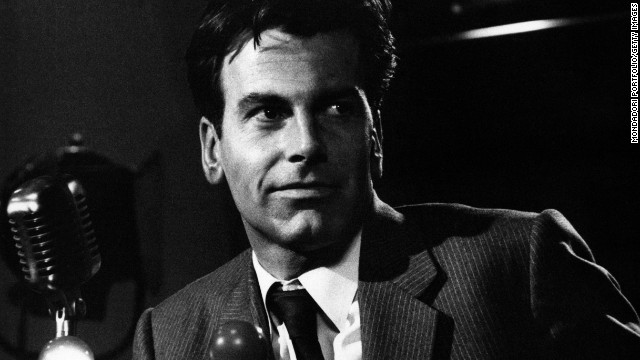 Maximilian Schell died on February 1 in a Austrian hospital with his wife by his side, his agent Patricia Baumbauer said. He was 83. Schell was nominated for an Oscar three times. He won in 1962 for "Judgment at Nuremberg."
Maximilian Schell died on February 1 in a Austrian hospital with his wife by his side, his agent Patricia Baumbauer said. He was 83. Schell was nominated for an Oscar three times. He won in 1962 for "Judgment at Nuremberg." 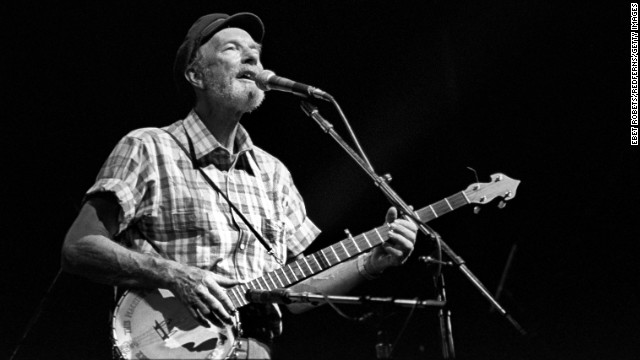 Legendary folk singer Pete Seeger, known for classics such as "Where Have All the Flowers Gone" and "If I Had a Hammer (The Hammer Song)," died of natural causes in New York on January 27, his grandson told CNN. He was 94.
Legendary folk singer Pete Seeger, known for classics such as "Where Have All the Flowers Gone" and "If I Had a Hammer (The Hammer Song)," died of natural causes in New York on January 27, his grandson told CNN. He was 94. 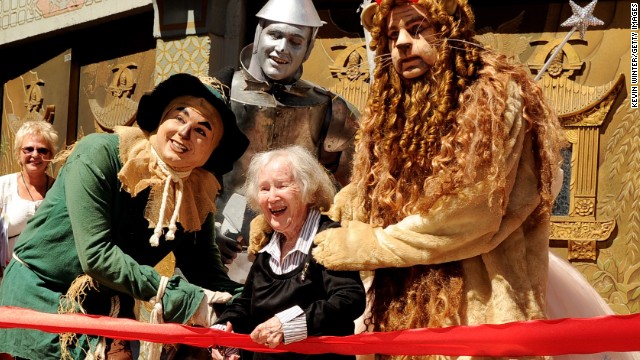 Ruth Robinson Duccini, who played one of the Munchkins in the 1939 classic "The Wizard of Oz," died on January 16. She was 95.
Ruth Robinson Duccini, who played one of the Munchkins in the 1939 classic "The Wizard of Oz," died on January 16. She was 95. 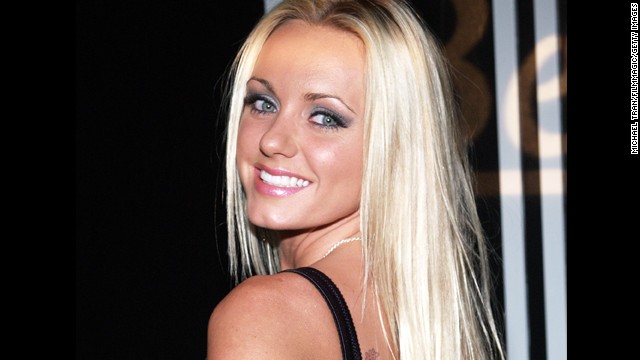 Former Playboy centerfold Cassandra Lynn Hensley was found dead at a friend's home in Los Angeles, the coroner there said on January 17. Hensley was 34. Her cause of death was not immediately known.
Former Playboy centerfold Cassandra Lynn Hensley was found dead at a friend's home in Los Angeles, the coroner there said on January 17. Hensley was 34. Her cause of death was not immediately known. 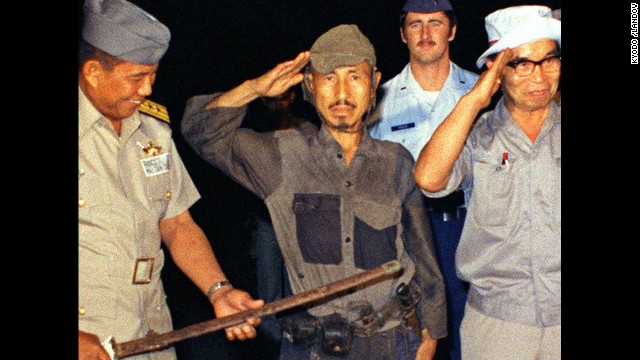 Hiroo Onoda, center, salutes after handing over his military sword on Lubang Island in the Philippines in March 1974. Onoda, a former intelligence officer in the Japanese army, had remained on the island for nearly 30 years, refusing to believe his country had surrendered in World War II. He died at a Tokyo hospital on January 16. He was 91.
Hiroo Onoda, center, salutes after handing over his military sword on Lubang Island in the Philippines in March 1974. Onoda, a former intelligence officer in the Japanese army, had remained on the island for nearly 30 years, refusing to believe his country had surrendered in World War II. He died at a Tokyo hospital on January 16. He was 91. 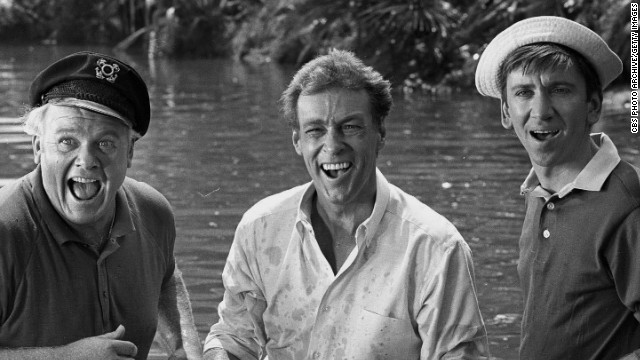 Russell Johnson, center, stands with Alan Hale Jr., left, and Bob Denver in an episode of "Gilligan's Island" in 1966. Johnson, who played "the professor" Roy Hinkley in the hit television show, passed away January 16 at his home in Washington state, according to his agent, Mike Eisenstadt. Johnson was 89.
Russell Johnson, center, stands with Alan Hale Jr., left, and Bob Denver in an episode of "Gilligan's Island" in 1966. Johnson, who played "the professor" Roy Hinkley in the hit television show, passed away January 16 at his home in Washington state, according to his agent, Mike Eisenstadt. Johnson was 89. 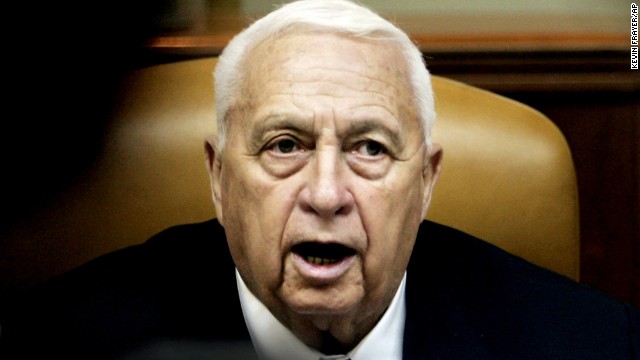 Ariel Sharon, whose half century as a military and political leader in Israel was marked with victories and controversies, died on January 11 after eight years in a coma, Israeli Army Radio reported. Sharon was 85.
Ariel Sharon, whose half century as a military and political leader in Israel was marked with victories and controversies, died on January 11 after eight years in a coma, Israeli Army Radio reported. Sharon was 85. 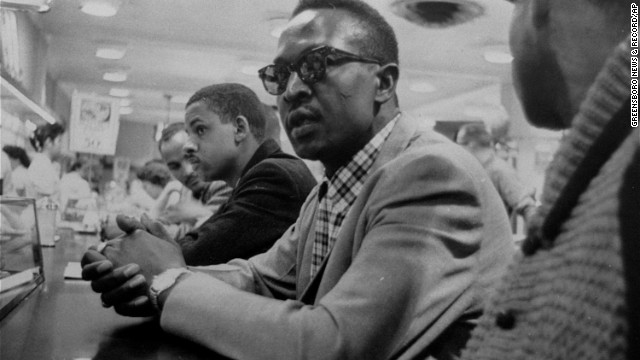 Franklin McCain, seen center wearing glasses, one of the "Greensboro Four," who made history for their 1960 sit-in at a Greensboro Woolworth's lunch counter, died on January 10 after a brief illness, according to his alma mater, North Carolina A&T State University.
Franklin McCain, seen center wearing glasses, one of the "Greensboro Four," who made history for their 1960 sit-in at a Greensboro Woolworth's lunch counter, died on January 10 after a brief illness, according to his alma mater, North Carolina A&T State University. 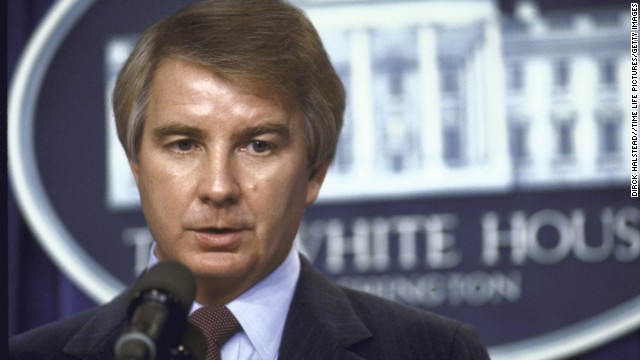 Larry Speakes, who served as President Ronald Reagan's press secretary, died January 10 at his home in Cleveland, Mississippi, following a lengthy illness, according to Bolivar County Coroner Nate Brown. He was 74.
Larry Speakes, who served as President Ronald Reagan's press secretary, died January 10 at his home in Cleveland, Mississippi, following a lengthy illness, according to Bolivar County Coroner Nate Brown. He was 74. 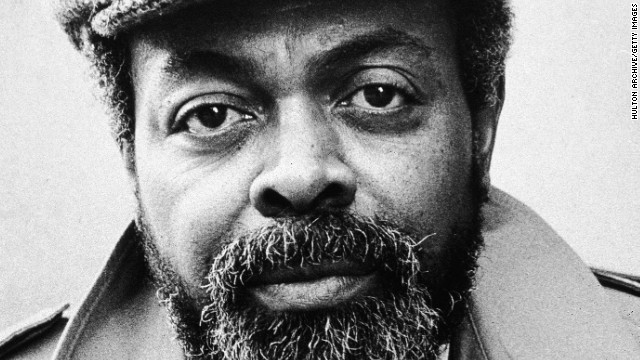 Poet Amiri Baraka, who lost his post as New Jersey's poet laureate because of a controversial poem about the 9/11 terror attacks, died on January 9, his agent said. Baraka was 79.
Poet Amiri Baraka, who lost his post as New Jersey's poet laureate because of a controversial poem about the 9/11 terror attacks, died on January 9, his agent said. Baraka was 79. 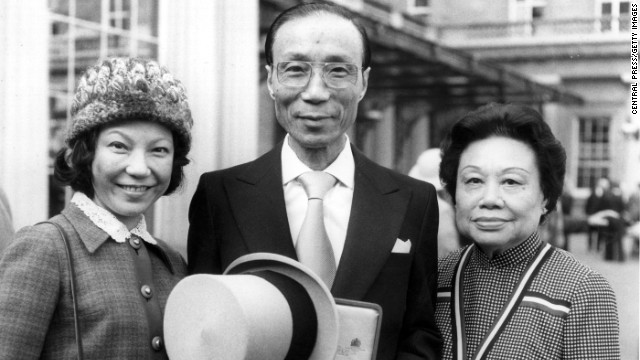 Sir Run Run Shaw, the media tycoon who helped bring Chinese martial arts films to an international audience, died at his home in Hong Kong on January 7 at age 106, the television station he founded said.
Sir Run Run Shaw, the media tycoon who helped bring Chinese martial arts films to an international audience, died at his home in Hong Kong on January 7 at age 106, the television station he founded said. 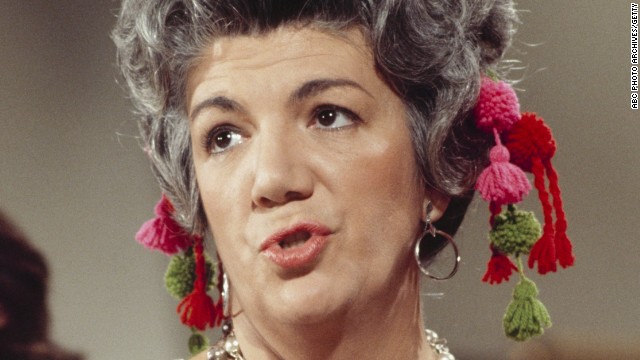 Stage, TV and film actress Carmen Zapata, who founded the Bilingual Foundation of the Arts as a means of of introducing "the rich and eloquent history of the diverse Hispanic culture to English-speaking audiences," died on January 5 at her Los Angeles home. She was 86.
Stage, TV and film actress Carmen Zapata, who founded the Bilingual Foundation of the Arts as a means of of introducing "the rich and eloquent history of the diverse Hispanic culture to English-speaking audiences," died on January 5 at her Los Angeles home. She was 86. 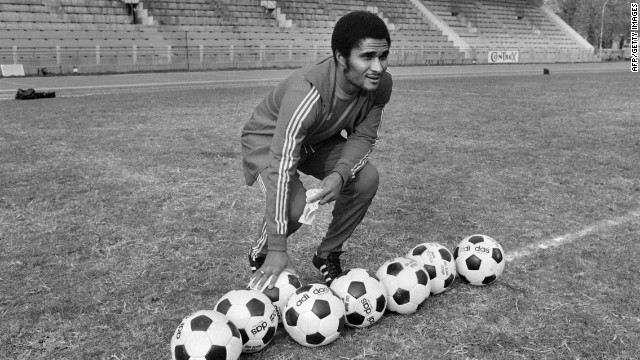 Portugal football legend Eusebio, who was top scorer at the 1966 World Cup, died from a heart attack on January 5 at age 71, said his former club, Benfica.
Portugal football legend Eusebio, who was top scorer at the 1966 World Cup, died from a heart attack on January 5 at age 71, said his former club, Benfica. 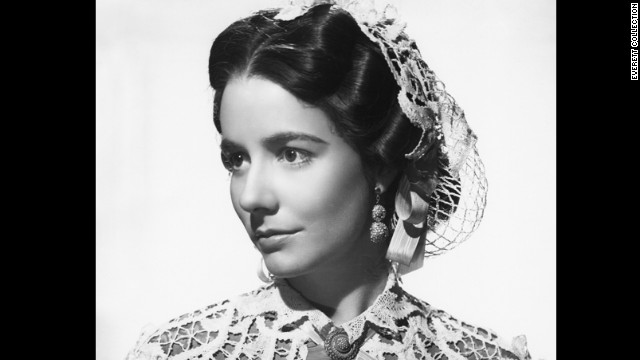 Alicia Rhett, who had been one of the oldest surviving cast members of the classic film "Gone With the Wind," died on January 3 in her longtime hometown of Charleston, South Carolina, a retirement community spokeswoman said. She was 98.
Alicia Rhett, who had been one of the oldest surviving cast members of the classic film "Gone With the Wind," died on January 3 in her longtime hometown of Charleston, South Carolina, a retirement community spokeswoman said. She was 98. 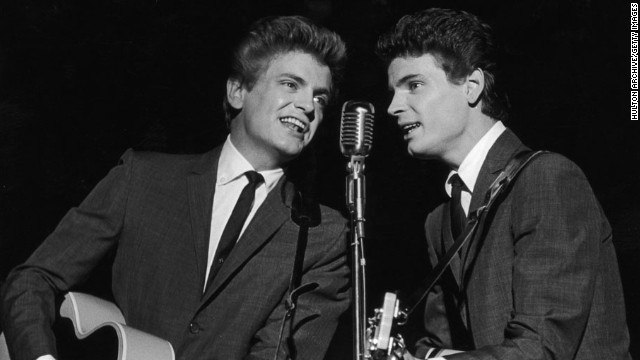 Singer Phil Everly, left -- one half of the groundbreaking, smooth-sounding, record-setting duo the Everly Brothers -- died on January 3, a hospital spokeswoman said. He was 74.
Singer Phil Everly, left -- one half of the groundbreaking, smooth-sounding, record-setting duo the Everly Brothers -- died on January 3, a hospital spokeswoman said. He was 74.  Photos: People we lost in 2014
Photos: People we lost in 2014 Artis was with Carter when he died early Sunday morning, Wahrer said, adding that Carter had lived in Toronto since his release from prison.
Carter told CNN three years ago that prison allowed him to do two things: shed the illusions and anger that spurred his youthful delinquency, and come to the realization that his destiny might lie in fighting for justice. He was a title-seeking prizefighter no more.
But first, he had to scrap his way out of prison.
"Hatred and bitterness and anger only consume the vessel that contains them. It doesn't hurt another soul," Carter told CNN. "If I were to allow myself to continue to feel that anger and the bitterness of being a victim, I would have never survived prison itself. Prison can deal with anger; prison can deal with hatred because prison is about all those things. So I had to overcome those things."
Carter became an activist for the wrongly convicted after his release and was the first executive director of the Association in Defence of the Wrongly Convicted from 1993 to 2004.
"Rubin will be remembered by those at AIDWYC who were fortunate enough to have worked with him as a truly courageous man who fought tirelessly to free others who had suffered the same fate as he," the group said in a statement.
"We will continue to fight against wrongful convictions, a battle that Rubin valiantly fought until the day he died. Rest in peace Rubin, your battle is over but you will never be forgotten."
There was a time when boxing enthusiasts were giddy about Carter's future. He was fast and powerful, hence his sobriquet, and despite being short for his weight class (5-foot-8), he became a Madison Square Garden and television fixture.
Ring magazine declared him one of the top middleweight contenders in 1963 after he knocked out 11 of his first 15 professional opponents.
"His shaven head, prominent mustache, unwavering stare and solid frame made him an intimidating presence in the ring decades before such a look became commonplace," according to the New Jersey Boxing Hall of Fame.
Following a loss in his only title bout in 1964, Carter precipitously fell from grace, losing seven of his 15 final matches before being fingered in a 1966 triple homicide at the LaFayette Bar and Grill.
He was convicted and sentenced to three life terms the following year. The ruling was later overturned, but Carter was convicted again in 1976, a year after Bob Dylan co-wrote a song declaring his innocence. That conviction, too, was tossed out, and Carter walked out of prison in 1985. In 1988, a Passaic County prosecutor filed a motion to dismiss the charges.
By that time, Carter was a cause celebre. In addition to the Dylan tune, his case had drawn the attention of a heavyweight counterpart, Muhammad Ali, and actor Burt Reynolds, among others.
His plight has also inspired at least a half dozen books, including his own autobiography, written from prison. A major motion picture that opened years after Carter's release would earn actor Denzel Washington his fourth Oscar nomination.
"God bless Rubin Carter and his tireless fight to ensure justice for all," Washington said Sunday.
The 1999 film played a key role in introducing Carter to an audience that had not followed his two-decade legal saga, but the ex-boxer said Washington, in a way, also introduced him to himself.
In his 2011 book, "Eye of the Hurricane: My Path from Darkness to Freedom," Carter explained that he was not perfect and conceded guilt to a host of regrettable crimes including assaults and robberies -- but not murder.
Those crimes, he said, were perpetrated when he was blind, operating unconsciously -- a recurring theme in his book -- and they were the product of the anger to which he succumbed growing up under Jim Crow, he said.
CNN's Chris Kokenes contributed to this report.











































No comments:
Post a Comment